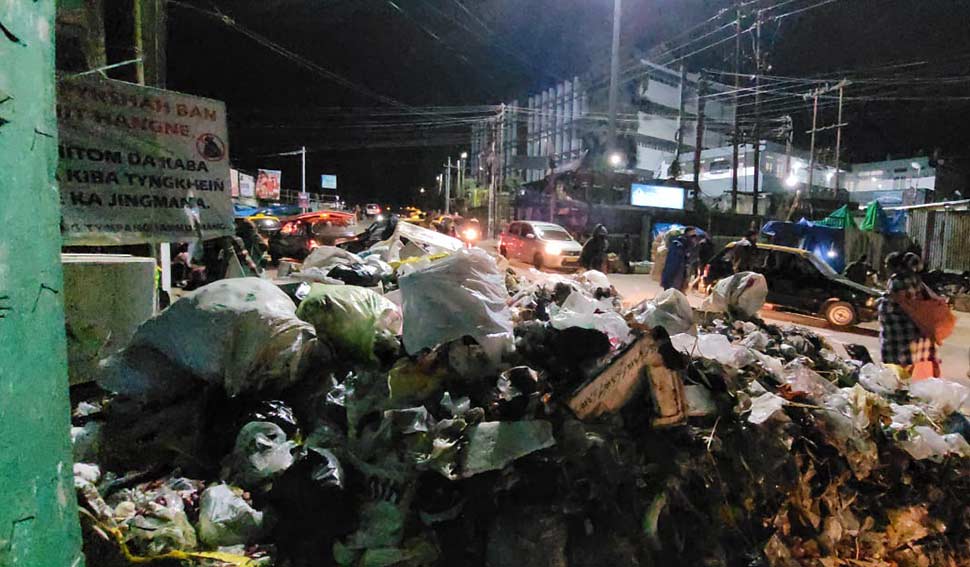Jowai town’s dilemma with waste

When this write-up was penned down, as usual garbage has accumulated in the different locations of Jowai town. The reason is because the government has failed the people once again and this is perhaps the third time that the town is facing such a predicament. In fact, since the beginning of last year when the Jowai Municipal was prohibited from dumping municipal solid waste at Mupyut, the government has not been able to make alternative arrangements to solve the problem.
In India 31% of the country’s population which is about 377 million according to 2011 census lives in urban areas. The country’s urban conglomerate generates 1,43,499 metric tons of municipal solid waste per day. This is according to the Central Pollution Control Boards figures from 2014-15. Add to that the numbers of towns have increased from 5,161 in 2001 to 7,936 in 2011 and now we are yet to have the data of 2021. With the increasing numbers or town and cities it is estimated that the amount of waste generate in these urban areas in the country will jump to 165 million tons in 2030.
While some ill-informed non-residents of Jowai would blame the town’s folks for the lack of civic sense, the question that begs the answer is does the residents have any other option. It is a matter of fact that rapid economic growth and the changing patterns of consumption have increased the generation of municipal solid waste in the town. The ever-increasing amount of waste generate will continue to mount in towns like Jowai until and unless the state government is able to come up with a permanent solution to solve the problem. It is also a fact that the denizen of the different localities in the town are paying their dues to the Jowai Municipal Board to collect their waste from their residence but it is the JMB which has once again failed in its duty.
Also Read | Jowai and Waste: When Political leaders failed the people
The solution to the problem has to come from the government particularly the Department of Urban Areas Development and the Ministry of Environment Forest and Climate Change (MoEF&CC) of the government of India. In Jowai the issue also persists because the chairman of the Jowai Municipal Board and the local MLA has failed to come up with solution to the problem. The duo has failed the town and its people big time.

In the context of Jowai, the problem becomes much more complex because the area is no longer considered a town under the purview of the Jaintia Hills Autonomous District Council nor is it under the municipality. In the absent of lawful Urban Local Bodies to look after the town’s problem, solid waste disposal crisis compounded in Jowai.
Also Read | Jowai MLA has failed to resolve issue of garbage
Management of municipal solid waste has therefore become one of the major challenges of the towns, cities in the state and Meghalaya is yet to come up with a permanent solution to the problem. Sustainable Development Goal number 6 seeks to provide the people of the world with clean water and sanitation and SDG 11 call for moving towards sustainable cities and communities by 2030, but sadly the goal is moving further away from the towns and cities in the state every day.
Can the state government achieve the two goals in 8 years’ time? The answer is an emphatic no. The problem Jowai town and its people are facing is clear indication that the government has no solution to solve the solid municipal waste in the towns and cities of Meghalaya. The urban folks of the state will therefore have to bear with the government’s failure but the question is at what cost?

Leave a Reply